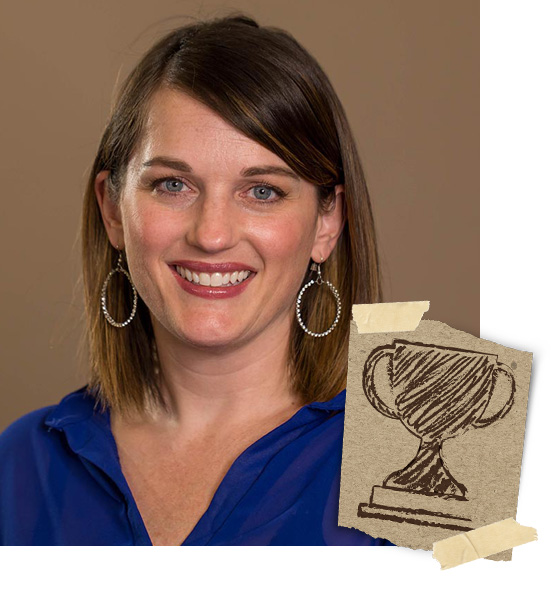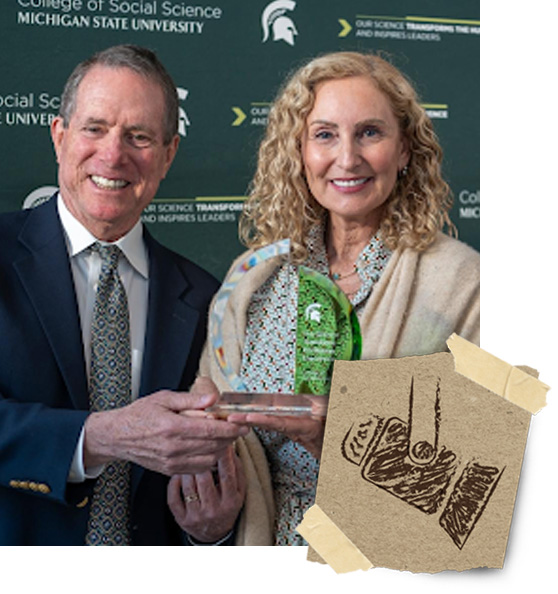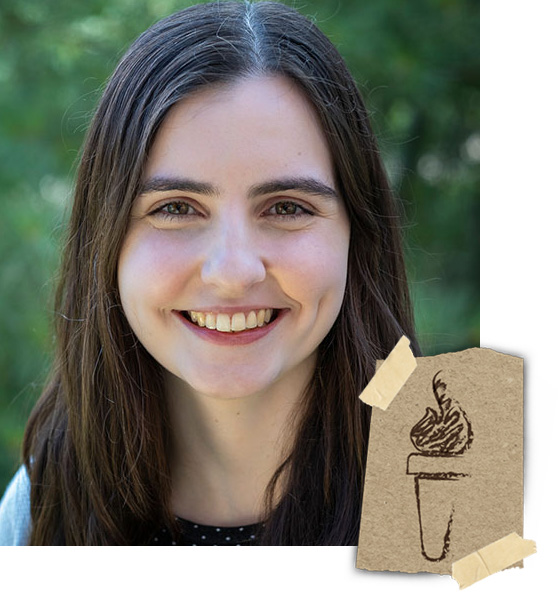Access Champion: Nicki Moody
October 7, 2025 - Emily Jodway
 Our Access Champion for the month of October and World Mental Health Day is Nicki Moody, a clinical instructor and field coordinator for the School of Social Work. In addition to teaching, Moody is in charge of coordinating and developing field placement sites for graduate and undergraduate students and provides professional guidance to students preparing for a postgraduate career in Social Work. She is both an instructor and an active practitioner, providing therapy for clients through her own private practice.
Our Access Champion for the month of October and World Mental Health Day is Nicki Moody, a clinical instructor and field coordinator for the School of Social Work. In addition to teaching, Moody is in charge of coordinating and developing field placement sites for graduate and undergraduate students and provides professional guidance to students preparing for a postgraduate career in Social Work. She is both an instructor and an active practitioner, providing therapy for clients through her own private practice.
Growing up in a low income housing area and with her own family struggling through poverty and undiagnosed mental health issues, Moody saw firsthand the importance of social workers and the services they provide. “I saw things in my neighborhood—social workers and CPS coming to do their investigations, doing supportive home visits to families who had crises or certain needs,” she explained. She had always felt the call to be a helper, and this first planted the seed within her to eventually study social work.
The first in her family to graduate college, Moody earned a degree in social work before spending time as a member of the Peace Corps living in southern Africa. It was her first experience living abroad and working with refugees and individuals with needs often different from what a social worker in America might encounter. “It really helped me to understand what being a community-based social worker meant, and I learned about the intersection of culture and human services and mental health through the work that I did there.” She then attended graduate school and began her career in social work in Lansing working with immigrants, refugees and undocumented minors.
While at her previous job, Moody would frequently work with MSU to host interns from the School of Social Work. When they informed her of a full-time position opening, she eagerly applied. For Moody, this was the ‘sweet spot’ in which she could teach and mentor while also working one on one with families and in the community. Her identity as both a teacher and a clinician also play a combined role in how she educates young students hoping to become social workers.
“Being in a position where I am able to practice my craft is really amazing, and it’s beneficial in the classroom as well,” she said. “Students are eager to hear about what mental health looks like in the practitioner world, how I provide mental health services, and what it could look like for them. I also believe it’s essential for social work students to be trained by those actively engaged in the field.”
Social work is a multifaceted profession and academic discipline, and one of Moody’s favorite parts of her job is working with students on career development and learning about the many different forms a career in social work may take. She enjoys sitting down one-on-one with students to create an education plan based on their interests and start to map out a potential career path.
In the classroom, Moody is committed to making sure students take care of their own mental health and wellbeing, especially as they prepare to enter a career field in which they will be helping others with similar struggles. Her students work together to create a community classroom contract and a self-care plan. “That self care plan includes notes about building community with one another, but also identifying all the different ways they can care for themselves,” she explained.
Moody coined the term ‘boring self care,’ to remind students that taking care of themselves might not always look as glamorous as spending a weekend away or having a spa night. It can be as simple as making sure to plan ahead to arrive at class on time, turning in homework assignments when they are due, and keeping a clean living space. “There’s an end goal here, and that might not include a Tuesday bar night,” she said. “It might mean that you have to make different decisions given your position and responsibilities.”
In a similar vein, Moody makes sure not to neglect her own mental health. She hopes that the stigma surrounding seeking out help in the form of therapy, medication or other mental health assistance continues to fade, as she has seen it do in recent years. Moody believes that especially for those working in a social work or mental health field, understanding and taking care of one’s own needs should be addressed in order to do their best at helping others. “We can’t expect to take on this incredible, vulnerable experience from others when we haven’t been willing to do that work ourselves,” she says.
“It’s so important for us to do our own therapy—to actually work through things in a clinical setting—largely to understand the weight of what we expect people on the other side to do for us. We want practitioners to say to their clients, ‘Tell me your deepest, darkest struggles,’ but many have never been on the other side of it and don’t know what it feels like to unzip yourself emotionally in front of someone else.”
Moody approaches the field of social work from a three-tiered perspective, and suggests doing the same when looking at ways we can continue to destigmatize mental health care. At the micro, or individual level, “We should acknowledge what our capacity is and not feel shame around what might be perceived as a limitation—everyone has a different capacity in what they can and can’t do.” At the meso level, she looks at ways the community around us can help. She views it as an organization’s responsibility to provide a culture and environment that supports people taking care of themselves and attending to their mental health. “Having services like an Employee Assistance office, offering flexibility in work plans and schedules, modeling care from leadership around mental health, are a few examples.” Lastly, when looking at our society as a whole, she encourages us to play a role in advocating for mental health services and policy at the administrative level. It takes all three levels working together to truly see change become a reality in society.
“There are many definitions of social work, but for me, it’s about helping individuals, families, groups, organizations, communities, all of those various levels, to live their best lives as defined by them, and in ways that keep everybody safe and healthy.”
Honorees’ views are their own and do not necessarily reflect those of the College of Social Science.
Read more:

Access Spotlight
Alumni
Mark and Barbara Gerson
The Gersons founded the Gerson Mental Health Initiative within SSC Social Science Scholars Program. The initiative gives students access to mental health care, psychoeducation, and stress-management classes, offering both prevention and intervention supports.

Access Torch
Student
Jessica Tschida
Jessica Tschida is a Psychology Ph.D. student researching ways to improve mental health for autistic youth. She previously worked in a children’s hospital autism research center and focuses on autism and community-based implementation.

Access Matters
We strive to cultivate an inclusive and welcoming college environment that celebrates a diversity of people, ideas, and perspectives.

